3D Shapes Shape Generator
Table of contents:
Introduction
Adding Shapes
Additional Settings
Customizing Shapes
Customizing Segments
Customizing Placement
Tips & Tricks
Welcome to the article dedicated to SelfCAD's 3d modeling tool called 3D Shapes, in which I'm going to explain the process of creating and customizing shapes with the help of the Shape Generator. As you can see, Shape Generator has been placed in the section below the divider, which marks it as one of the more complex shapes available in SelfCAD. Because of this complexity, the customization process is much more complicated than it was in the case of basic shapes.
Adding shapes
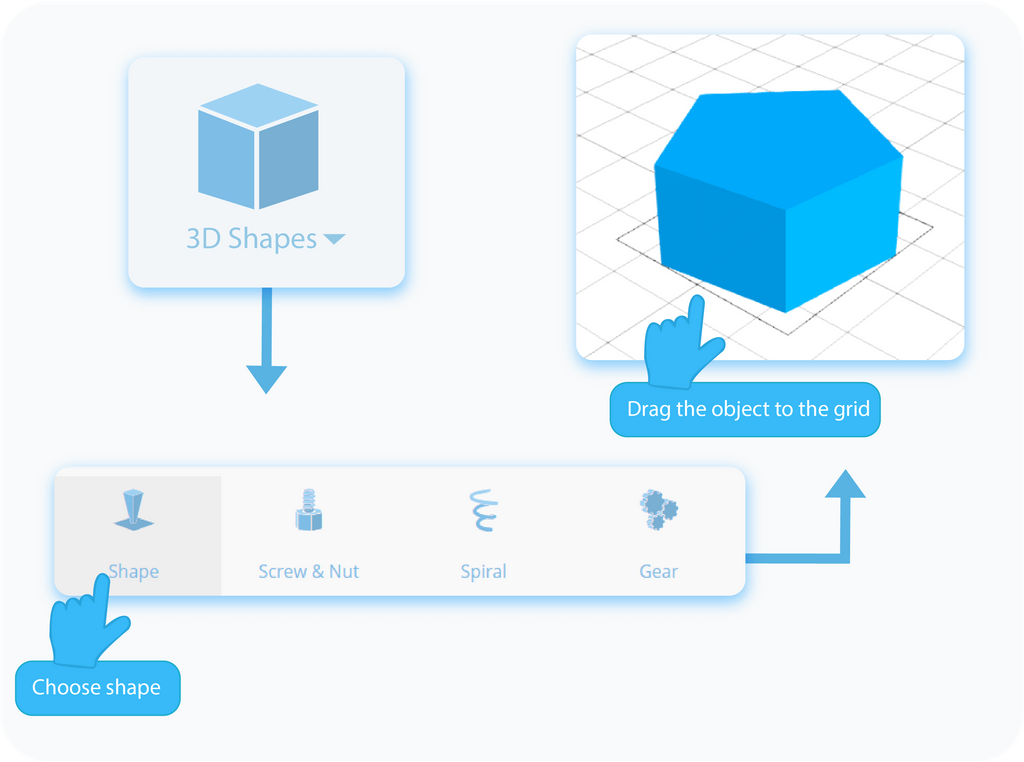
There are two ways you can follow to add shapes to the grid. The first of them is by simply selecting the Shape from the drop-down list and then dragging it to any place in the grid. It’s the quickest way to add shapes, but the downside of this method is that it skips the customization process and adds its basic version.
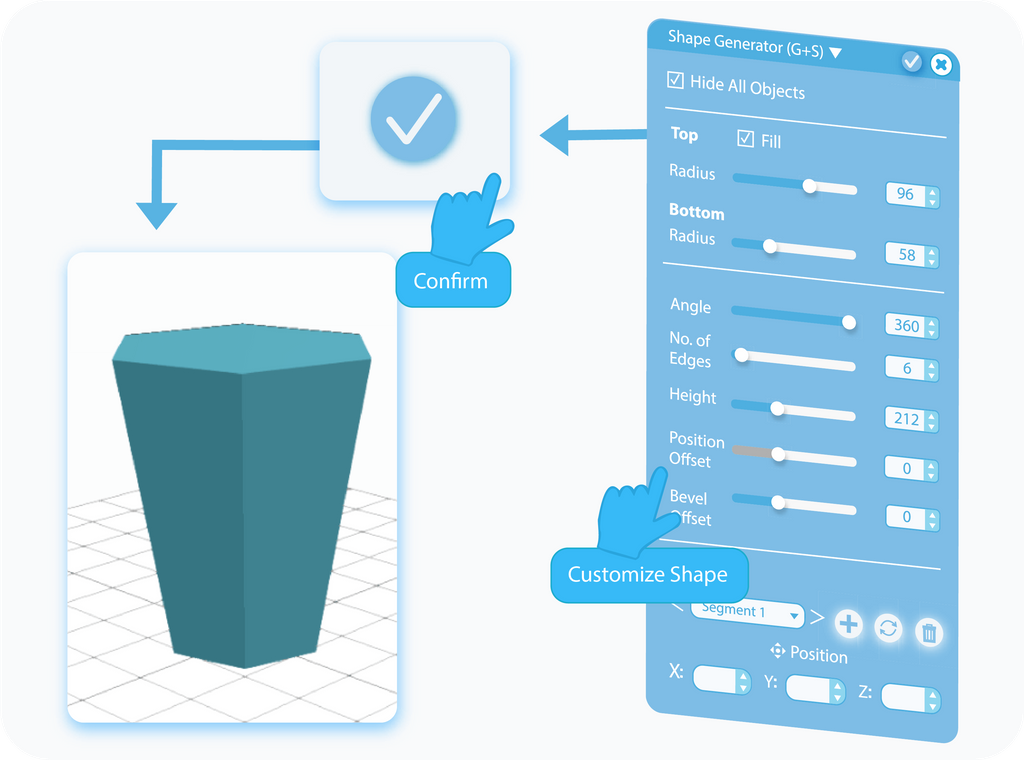
The second option is by selecting the Shape from the drop-down list and simply clicking on it. This way, you’ll open the Tool Setting Panel on the left side of the screen, with all of the customizable features available for it. To finish the customization and add the model to the grid, you have to confirm the changes by pressing the tick button at the top of the panel.
Hide all objects
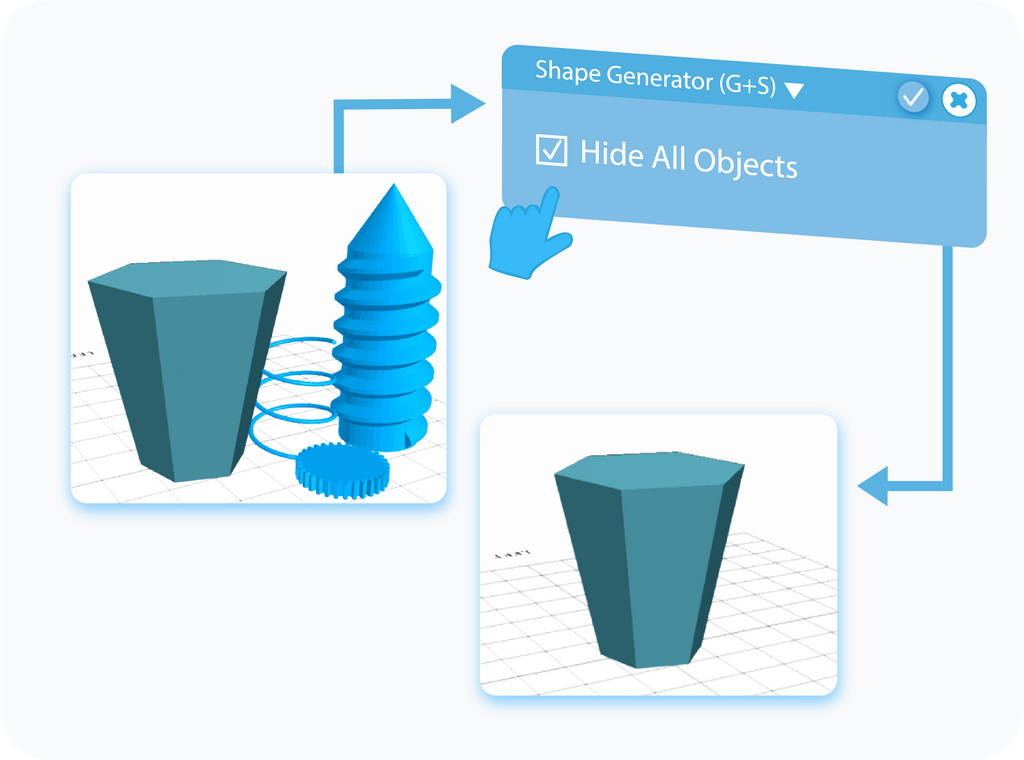
Hide all objects is a feature enabled by default, and as its name suggests, it hides every other object previously added to the grid. It allows you to customize the current model without other models overshadowing it.
Top Radius + Fill
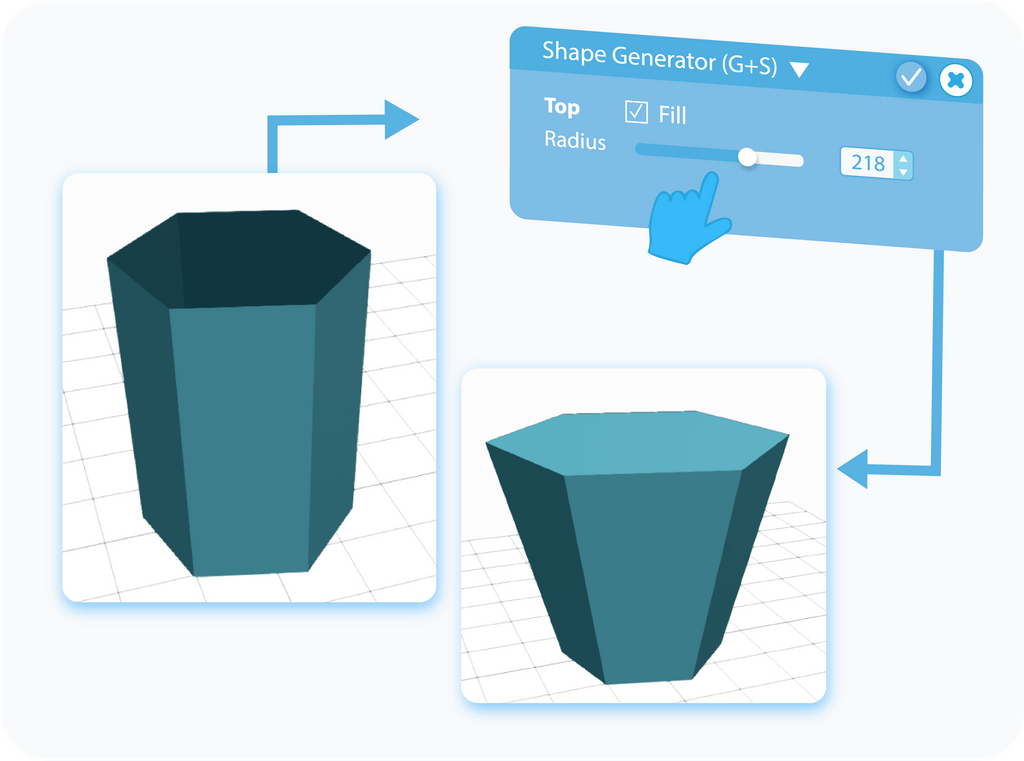
Top Radius is a feature dedicated to manipulating the size of the upper edge of the shape, and the Fill setting allows you to choose between creating a solid shape or hollowing it out at the top.
Bottom Radius + Fill
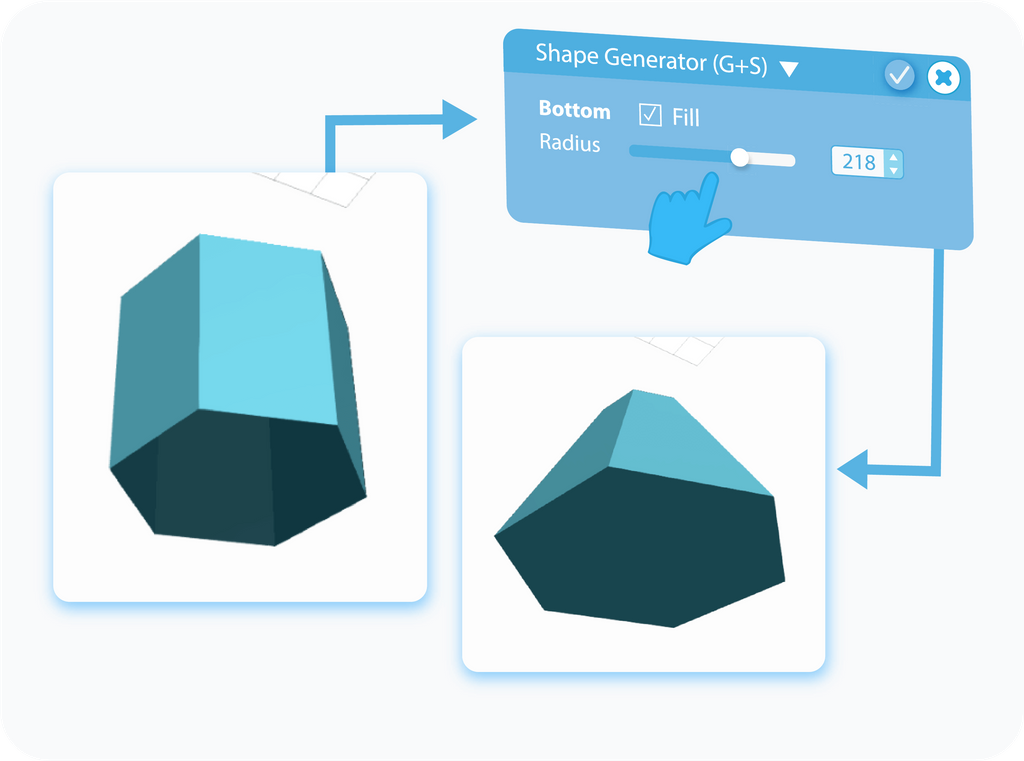
Bottom Radius is a mirror of the previous feature. It allows you to set the size of the lower edge of the object, and the Fill setting allows you to choose between creating a solid, or hollowing the object out at the bottom.
Angle
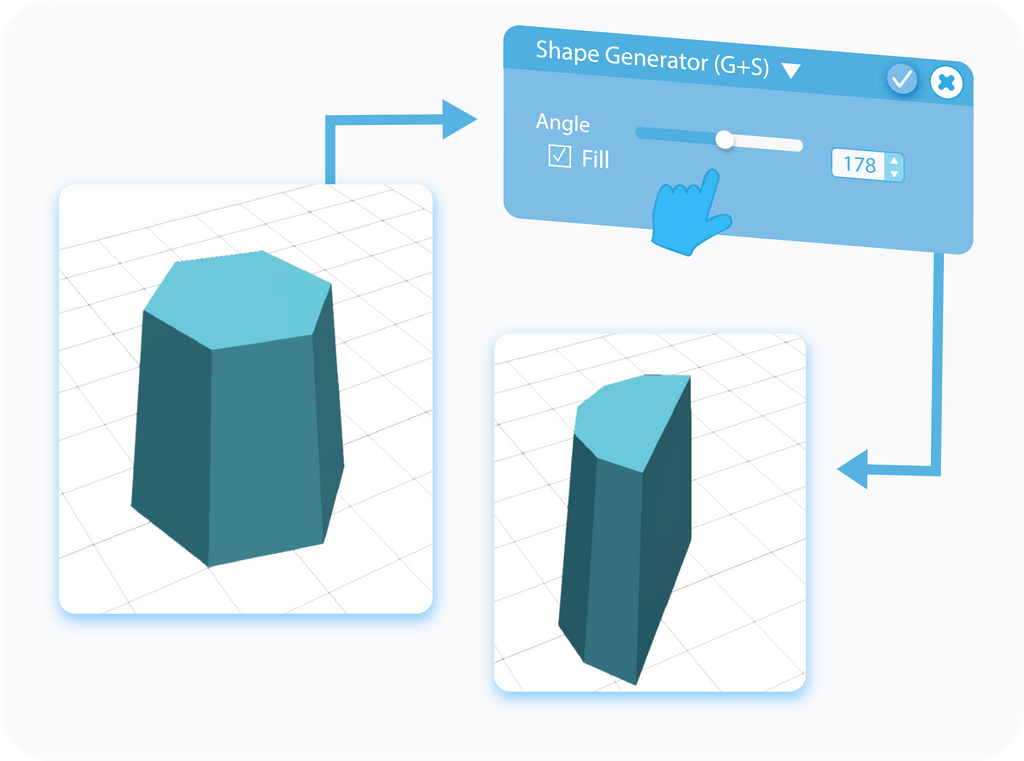
The Angle is a customizable setting that allows you to change the shape of the object by changing its rotation. The default value is '360', which translates to a full rotation, and by lowering this value, you'll create an Arc. The Arc gives you access to the Fill setting, which allows you to choose between creating a solid or a hollowed shape.
Number of edges
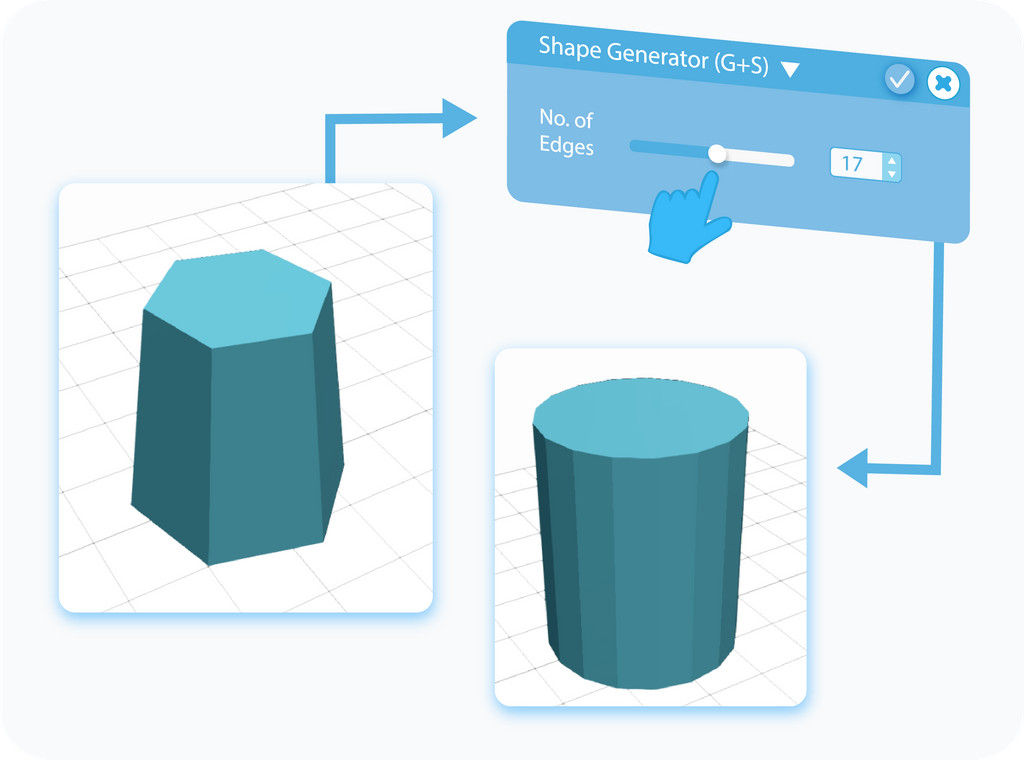
The number of edges is another feature responsible for changing the overall shape of the object. You can start with something as simple and basic as a triangle, and then gradually increase the number of edges until you achieve a perfect circle.
Height
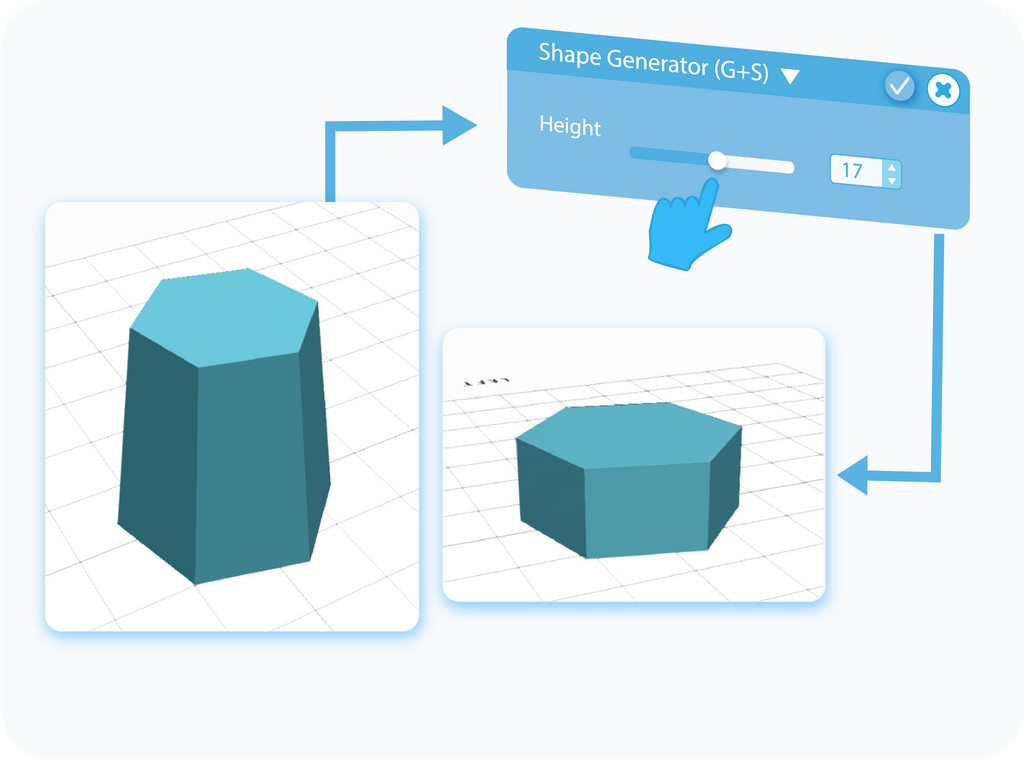
Height is yet another feature responsible for the overall size of the Shape, and here you can manipulate its size on the Y-axis.
Bevel Offset
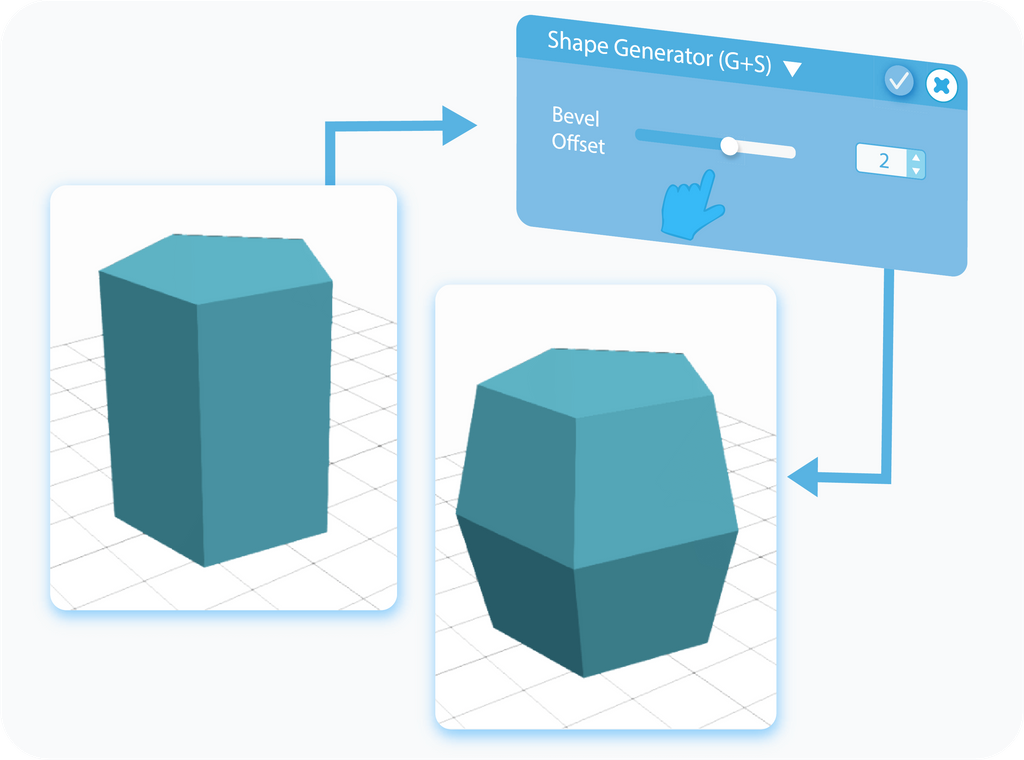
Bevel offset is a feature that allows you to set the curvature of the object. The negative value will create a cavity, and a positive one will bulge it. Setting the bevel will give you more options for customization.
Bevel Level
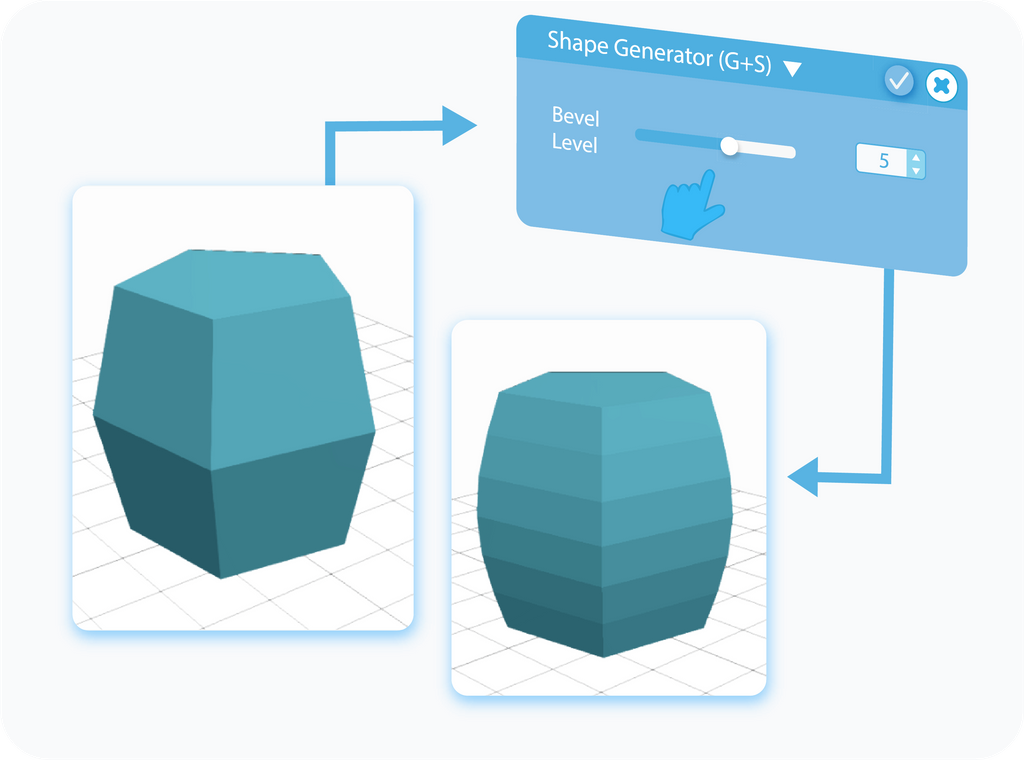
Bevel Level is a very straightforward feature that allows you to add detail to the offset, making it look more smooth and rounded.
Bevel Weight
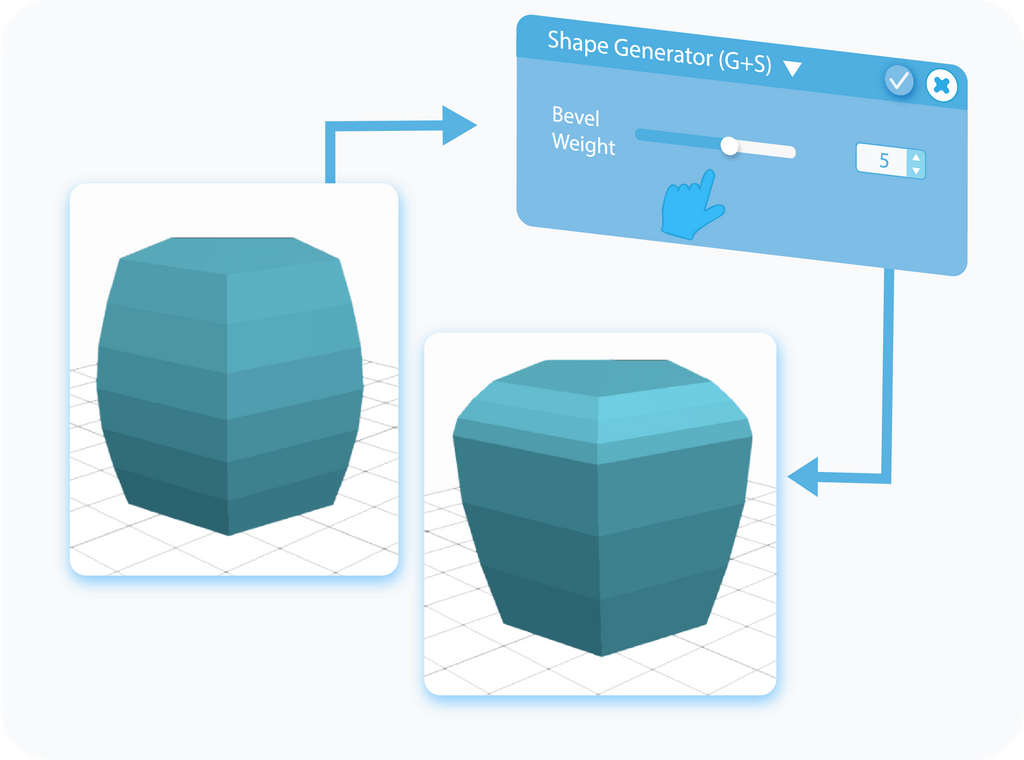
Bevel Weight, on the other hand, is a feature that allows you to choose a point at which the Bevel will have its focal point, at which the set curvature will have its peak value.
Segments
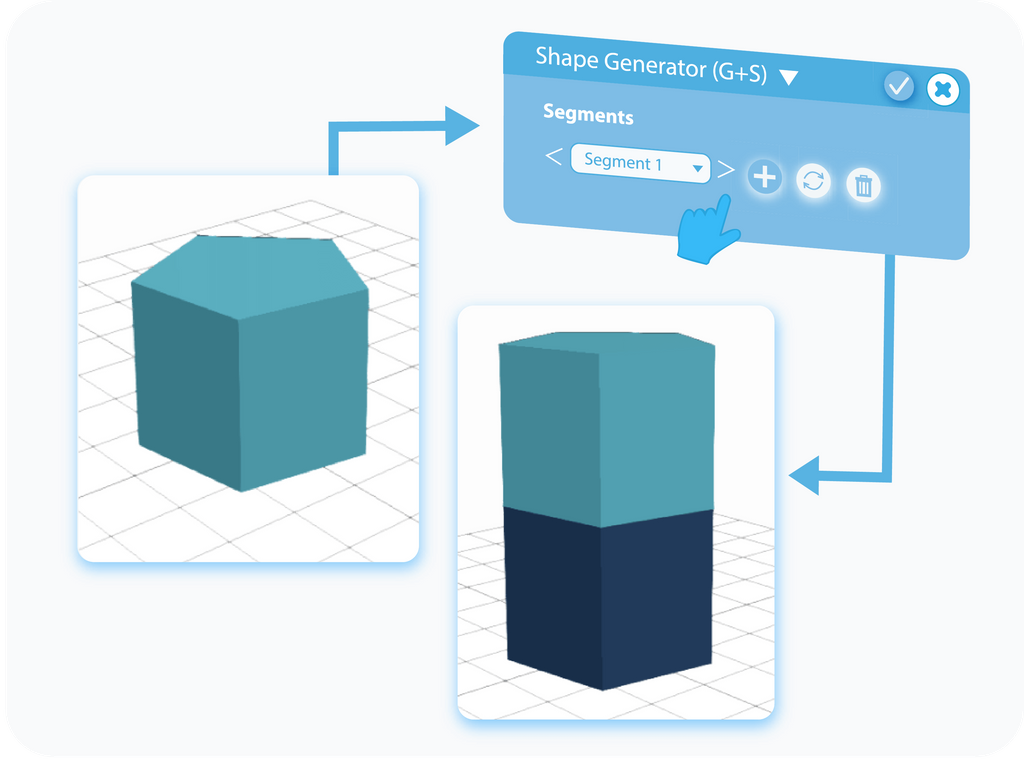
So far, all the settings were very standard as far as 3D Shapes go, but the Segments is what distinguishes this tool from other 3D Shapes. Segments in the Shape Generator serve as layers of the object, which you can add, by pressing the '+' button. Segments will be stacked, on top, of each other, and each of them can be, customized as a separate figure. Also, adding additional segments will give you the possibility to create and model the offset between them.
Twist
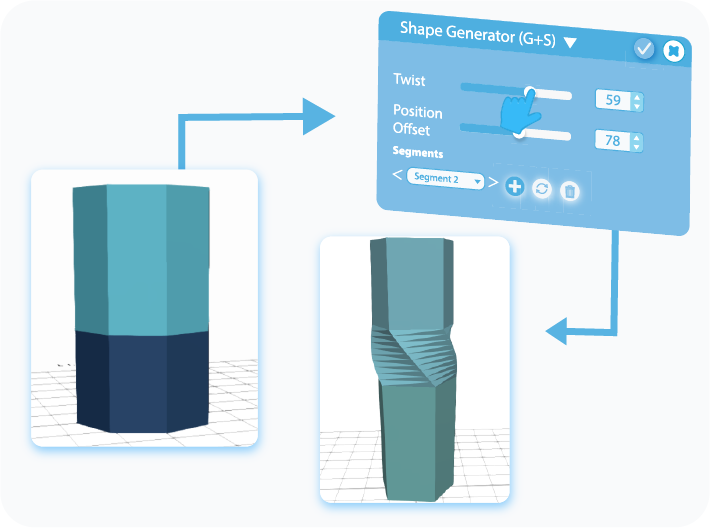
As its name suggests, this option allows you to Twist parts of the generated Shape, and to be more precise, its Offset. Naturally, you can Twist it in both directions, up to 180 degrees, which will result in something akin to a thread. The Twist might not be visible on a lower resolution, so I suggest you increase the Offset Smoothness if it happens to you. More on that later.
Position Offset
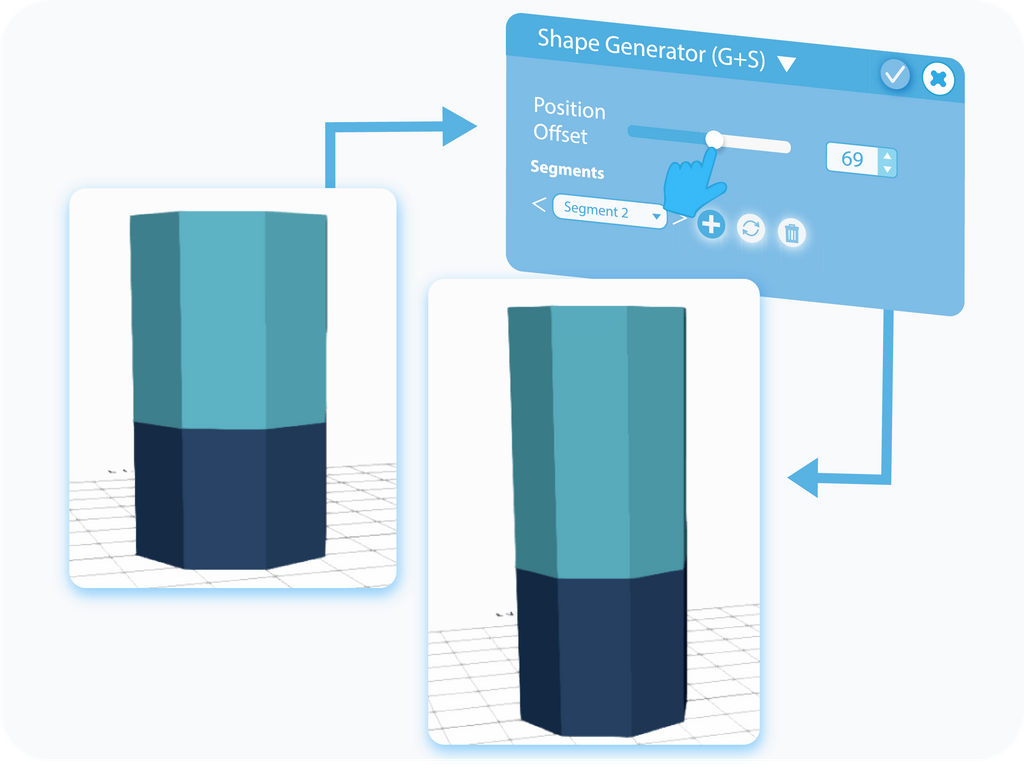
Position Offset is a setting that allows you to create a connection between segments of the generated shape and set its overall height. Naturally, you'll be able to use this setting only after adding at least one segment to the Shape.
Offset Smoothness
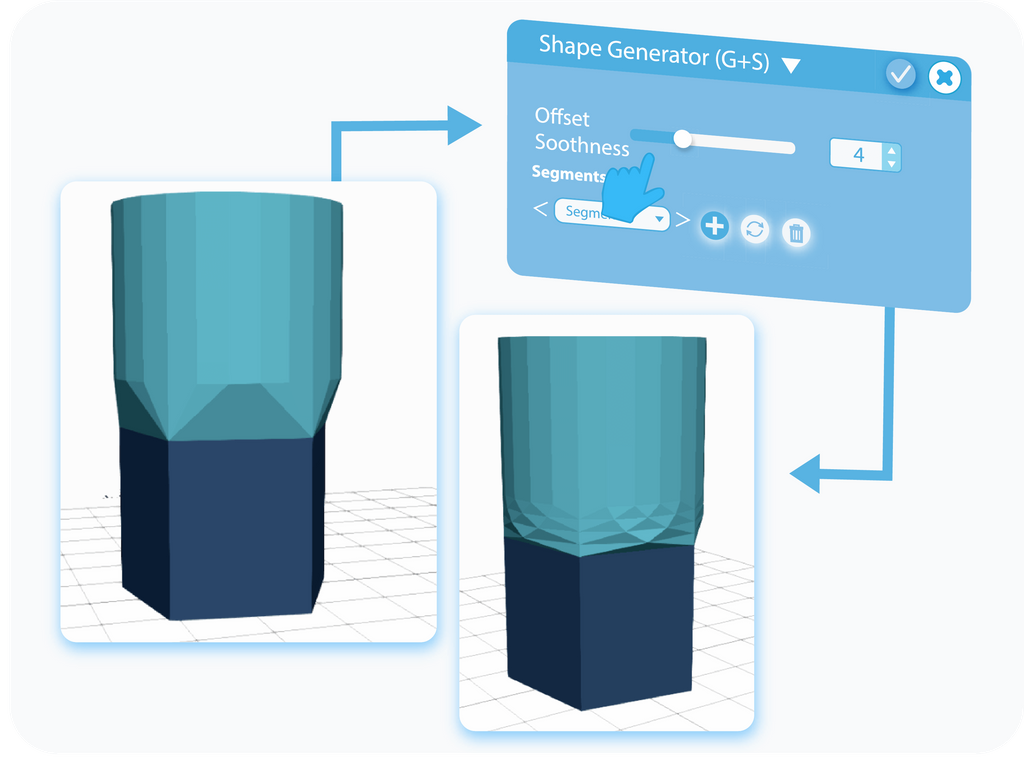
Offset Smoothness is another feature that becomes available after adding at least one additional segment to the shape, and it allows you to set the resolution of the Offset. Furthermore, when each of the segments has a different number of edges, this feature will help you create a smooth transition between them.
Position
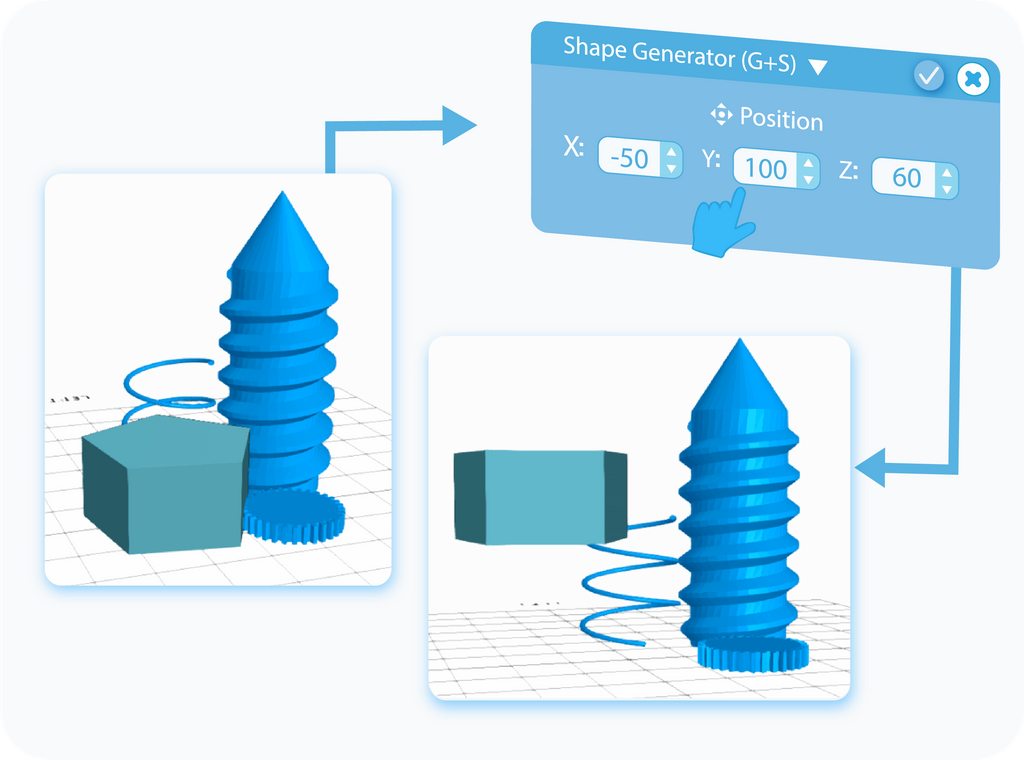
You can use the Position feature to change the placement of the object within the grid. You're able to manipulate it by changing the values in the text-boxes, where each of them represents the position on one of the three axes. You can use both positive and negative values, which will change the direction of the movement on the axis.
Rotation
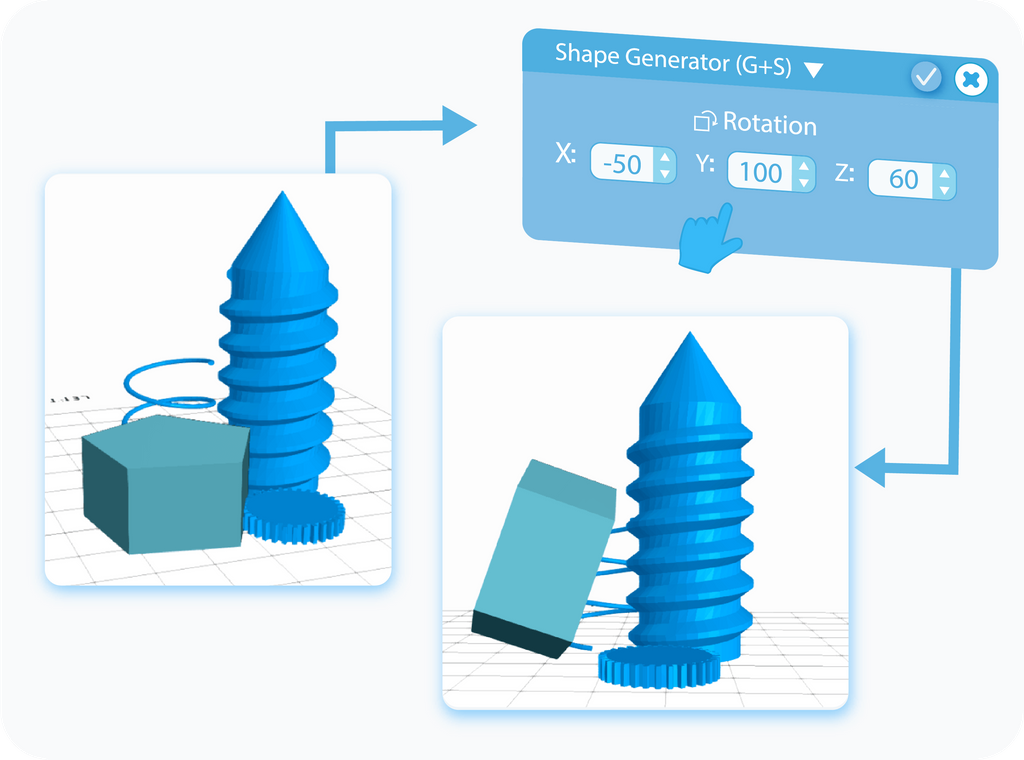
The Rotation feature allows you to set the angle of rotation of the object within the grid. You're able to manipulate it by changing the values in the text-boxes, where each of them represents the rotation on one of the three axes. You can use both positive and negative values, which will change the direction of the rotation around the axis.
Create Bridges
You can use regional selection to create bridges between them. In the following examples, you can see how to create them between Edges, as well as Polygons.
Boolean
With the Boolean operations, in SelfCAD called Stitch & Scoop, you can use various shapes to impact other models.
And that's all there is to the Shape Generator. After reading this article, you should have a general idea about its creation and the customization process behind it. Of course, the graphics shown here were just examples, and any change in the settings will impact the overall shape of the object, but their underlying principles will always stay the same. And that's all I had for you. I wish you success in your future projects. See you, and stay tuned for more content to come!
Haven't tried SelfCAD yet? Register now, and try it out for free!
Do you want to learn 3D modeling? Check out our interactive tutorials.




